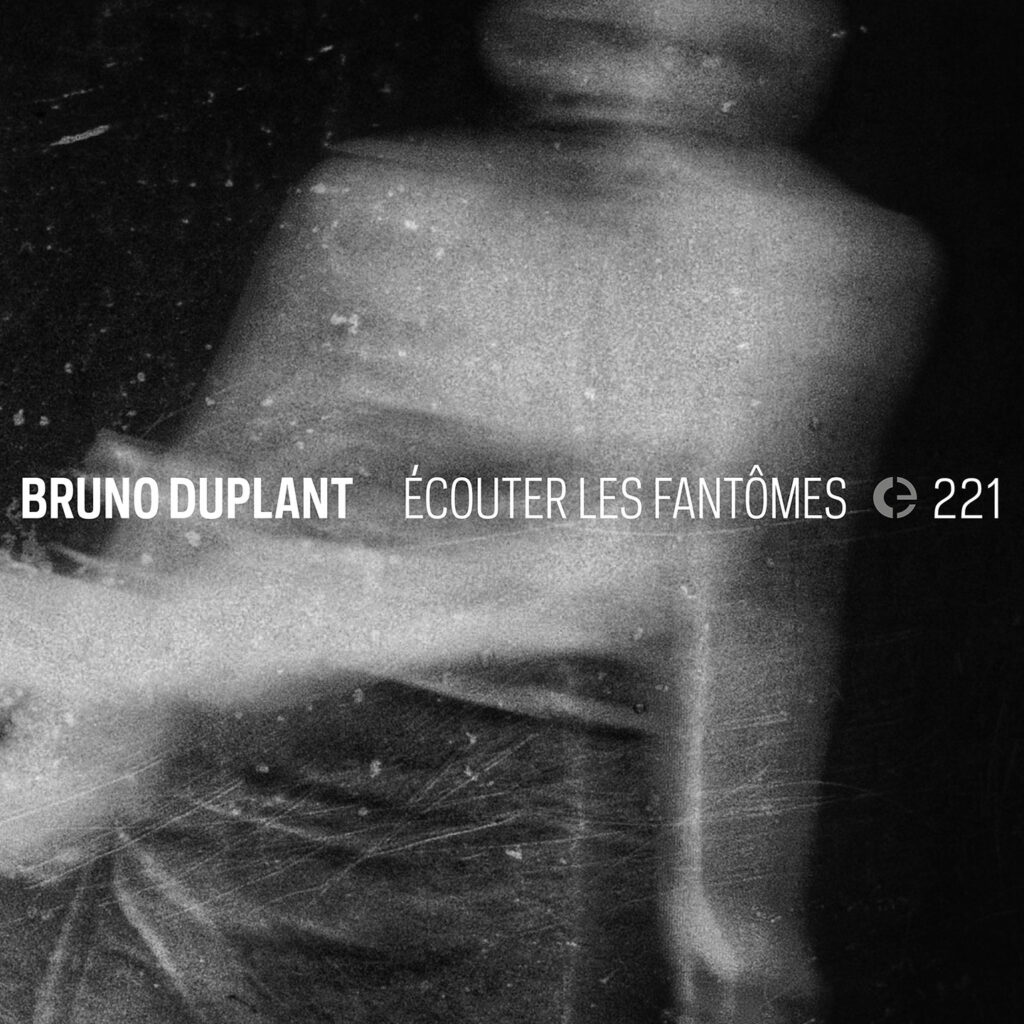
Bruno Duplant’s “Écouter les fantômes” is an immersive journey that sits at the intersection of sound art, memory, and the imagination. A prolific composer from Northern France, Duplant draws inspiration from literary figures such as Gaston Bachelard and Stéphane Mallarmé, blending their philosophical musings with musical influences from the likes of John Cage and Eliane Radigue. His work is often concerned with the intangible – what he refers to as “fictions” – allowing his compositions to transcend reality and delve into a dream-like, forgotten space.
The album, consisting of two expansive tracks, creates a haunting auditory experience. It’s not haunted in the traditional sense of eerie noises or ghostly apparitions; rather, it feels like an exploration of the shadows cast by forgotten memories and distant echoes of life. Duplant’s fascination with what’s invisible and unspoken is clear, reflecting the influence of theorists like R. Murray Schafer, who examined the relationship between sound and its environment. In “Écouter les fantômes”, these “ghosts” seem to represent the remnants of what we can’t consciously recall but continue to carry within us – both sonically and emotionally.
Duplant’s use of acoustic and electronic devices crafts a sonic narrative where boundaries between time, place, and memory are blurred. The pieces unfold slowly, with layers of delicate sound textures that reflect his keen attention to the small, often unnoticed elements of life. Echoes, distant murmurs, and drones overlap like half-remembered conversations or the faint traces of a dream. These auditory choices invite the listener to engage in a deep, almost meditative form of listening, akin to how one might approach the works of Luc Ferrari or Radigue – both of whom Duplant clearly reveres for their ability to manipulate sound into abstract landscapes.
There’s a strong narrative current running through the album as well, in the sense that each sound element feels like a chapter in a larger, surreal story. This is where his connection to writers such as Georges Perec comes into play, particularly in the way Duplant’s music evokes memory. Perec, known for his explorations of loss, memory, and absence, shares with Duplant a fascination for what’s unsaid or invisible. It’s as if “Écouter les fantômes” is a sound map of forgotten moments, allowing us to access places within ourselves we didn’t realize we had lost.
Ultimately, “Écouter les fantômes” is less an album to be listened to casually and more a space to be inhabited. Like many of Duplant’s works, it defies conventional musical structures in favor of a more immersive, philosophical approach. This release on Crónica captures his signature ability to bend sound, time, and memory, reminding us that often the most meaningful things are those we cannot see or touch but rather feel hovering just out of sight – like ghosts. Vito Camarretta
via Chain DLK
